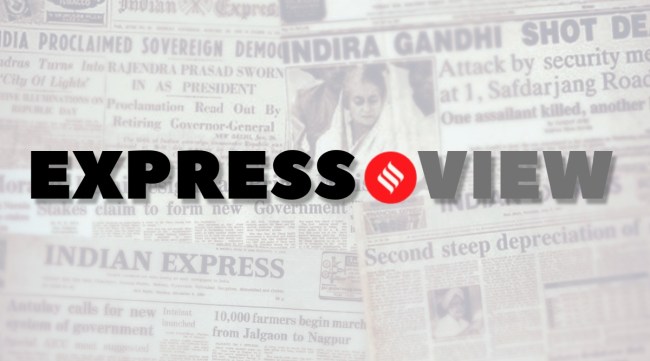Opinion Weaponisation of IPC to set police on journalists cuts across parties — and clamps down on press freedom
The Opposition needs to look at how its failure to live up to its self-righteous posturing on free speech in states where it is in power undermines the credibility of its fight against the BJP. And the BJP government must address its own glaring double standard.
 It is no mere coincidence that the sections cited in the FIR against Zubair — Sections 153 (A) and 295 (A), promoting enmity between different groups, and malicious acts intended to outrage religious feelings — also figure in the FIR against Ranjan.
It is no mere coincidence that the sections cited in the FIR against Zubair — Sections 153 (A) and 295 (A), promoting enmity between different groups, and malicious acts intended to outrage religious feelings — also figure in the FIR against Ranjan. The arrest last week of Mohammed Zubair, co-founder of Alt News, and the arrest drama that played out at the Ghaziabad residence of Zee News anchor Rohit Ranjan this week, speak of something similarly chilling, despite their different circumstances and specific contexts — the bar for criminalising the press is being pushed lower and lower. The IPC is being weaponised against journalists unabashedly, endangering due process and the vital protections it affords to the rights and freedoms of all citizens. And while BJP-led ruling establishments have earned themselves a deservedly dismal reputation on this count, the vindictiveness is being mimicked on the other side of the political fence. Zubair was arrested by Delhi Police that reports to the BJP-ruled Centre for a 2018 tweet that shared a clip from a 1980s’ film by Hrishikesh Mukherjee — weeks after he flagged now-suspended BJP spokesperson Nupur Sharma’s remarks on the Prophet in a TV debate. Ranjan was whisked away by UP Police on Tuesday morning, leaving the police team that swooped in from Chhattisgarh, stranded, days after his show ran a misleading video of Rahul Gandhi, for which the channel later apologised. Gandhi’s comments after an attack on his Wayanad office in Kerala were linked to the killing of a tailor in Udaipur — FIRs were promptly registered against Ranjan in the Congress-ruled states of Rajasthan and Chhattisgarh.
It is no mere coincidence that the sections cited in the FIR against Zubair — Sections 153 (A) and 295 (A), promoting enmity between different groups, and malicious acts intended to outrage religious feelings — also figure in the FIR against Ranjan. They are part of a spreading pattern, a template for the targeting of not just journalists, but also others who ask questions of the state, express opposition or dissent. Clearly, no lessons have been learnt by Delhi Police, for instance, which rushed to Bengaluru to arrest 22-year-old climate activist Disha Ravi last year, only to have its case, that sought to paint her as a “key conspirator” in the dissemination of a toolkit amid farmers’ protests, blow up in its face. Giving her bail, Dharmender Rana, additional sessions judge, had said: “The offence of sedition cannot be invoked to minister to the wounded vanity of the governments”; this year, an SC bench put the sedition law on hold. At the same time, however, be it misuse of IPC’s Section 124A in Ravi’s case or weaponisation of Sections 153 and 295 against Zubair and Ranjan now, the ruling establishment probably counts on an impunity offered by a higher judiciary that also takes the backward step. The SC order that upheld the SIT’s clean chit to the Gujarat government in a 2002 case recently, also, worryingly, gave the explicit cue for the FIRs against those who stood on the side of the petitioners lodged the very next day.
The Opposition needs to look at how its failure to live up to its self-righteous posturing on free speech in states where it is in power undermines the credibility of its fight against the BJP. And the BJP government must address its own glaring double standard. On the world stage, it speaks of India’s “vibrant democracy” and alongwith G-7 countries, commits to “protecting the freedom of expression and opinion online and offline”. What should be addressed by a rebuttal or a clarification is now being routed through the police station. This clamps down on press freedoms and gives a lie to those proud claims made abroad.






